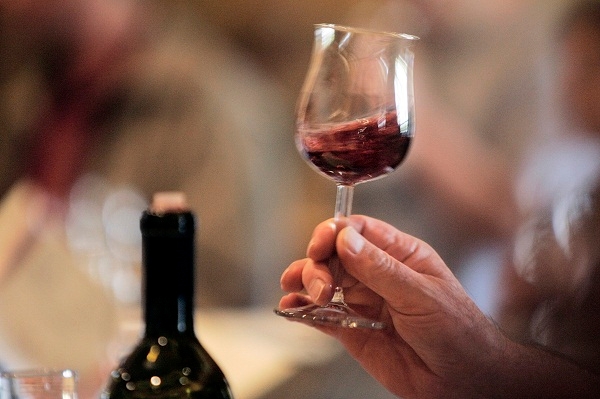If the ongoing Brexit saga (and, er, Trump’s win today) is enough to make you turn to drink, well, maybe you should.
Investors in fine wine have been the surprise winners of the Brexit fall out, with vintage wine the top investment class of 2016 so far.
The London International Vintners Exchange (known as Liv-ex) is an exchange for investment-grade wine. Its benchmark index is the Liv-ex Fine Wine 100 which represents the price movement of 100 of the most sought-after fine wines for which there is a strong secondary market. Calculated monthly, the Liv-ex Fine Wine 100 is now up 22.3 per cent on the year-to-date, following 11 consecutive months of positive gains.
The rise comes at a time when rock bottom interest rates mean other assets, such as bonds, are returning next to nothing. The stock market, meanwhile, is suffering from ongoing uncertainty both in the Eurozone and the US.
Peter Shakeshaft, chief executive of fine wine investment experts Vin-X, says fine wine does particularly well during times of economic uncertainty.
‘Including fine wine in your portfolio could be an important addition providing stability and growth over the years ahead, particularly at a time of historically low interest rates,’ he says.
Shakeshaft’s view is backed up by another wine investment company, Cult Wines. Its trade sales rose by 106 per cent in the week after the EU referendum. Cult Wines analysts noted that wine tends to perform well when the pound is weaker, and it boasts a number of defensive characteristics.
For the uninitiated, fine wine investment works like many other investment classes in that wine is purchased with the aim of selling it for a higher price in the future. But unlike many other investments, wine improves with age. Coupled with this is the fact that a limited amount is produced each year and, with some bottles inevitably consumed, supply decreases over time. In a nutshell, limited supply and high demand can make expensive vintages a profitable investment.
Most wine investments are priced in Sterling so a falling pound has sparked a buying spree among overseas buyers. ‘With Sterling, sellers able to exit at a profit due to this increased global demand, it’s a win/win scenario for all,’ says Shakeshaft. ‘With no clear end in sight to the current volatile financial and economic conditions, investors are expected to continue to seek safe havens, like fine wine, for their capital.’
However, investors need to know what they’re doing if they want to end up with profits and not undrinkable, unsellable plonk.
Most investment grade wine comes from the Bordeaux region of France. Bottles are normally purchased in cases of 12. The more expensive wines – which cost several thousands of pounds per case – tend to have the greatest potential for growth.
Bordeaux wines are classified into five ranks. The best ones are the first growths, closely followed by the super seconds. Further down the list are third, fourth and fifth growths. The better the wine, the longer it takes to mature: first growths typically take 15 to 20 years. With that in mind, investors need to see wine as a long-term investment.
Vin-X’s analysis of Bordeaux wines since 2008 concludes that a stock selection mixing prime, mid and off vintages is the key to investment success. Previous reports by the company have shown that well-balanced fine wine portfolios have significantly outperformed equities, gold and property in the past 30 years.
Obviously, picking the right wines is crucial. Anyone who invested in the off-vintage second wine Carruades Lafite in 2011 will be raising a glass to the fact that its value had increased by 357 per cent by 2014. In 2016, the best growth belonged to mid vintage wines, with Right Bank wine Angelus growing by 32.99 per cent.
Investors who want a taste of the wine market should always deal with an established, reputable merchant – there are plenty of scammers around looking to con naïve investors into parting with their cash.
As with any ‘alternative’ investment, don’t invest what you can’t afford to lose. But, on the plus side, you can always drown your sorrows if things fail to go your way.
Emma Lunn is a freelance personal finance journalist






Comments